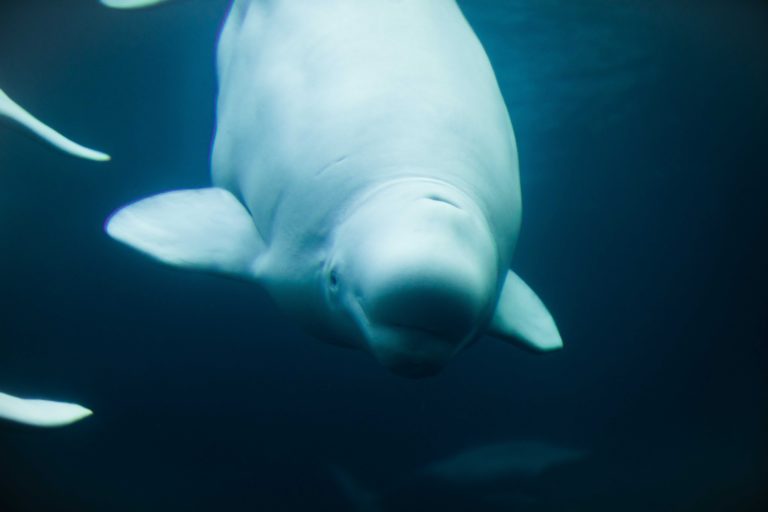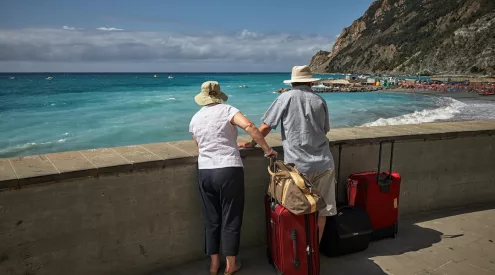Two beluga whales that have been living in captivity at a Chinese marine park for most of their adult life will soon be relocated to an Icelandic open-water sanctuary. The beluga whale sanctuary is the first of its kind.

The two whales are named Little White and Little Grey. Both are 12-year-old females.
According to Thrillist, they were both caught in Russian waters. The pair have been performing at Shanghai’s Changfeng Ocean World.
Beluga whales struggle to survive and breed in captivity. In the wild these animals can live for 35-50 years. According to The Whale Sanctuary Project belugas often die before the age of 30 in captivity.
In preparation for their move to the open-water sanctuary, Sea Life Trust has spent seven years surveying the area. The organisation has also planned the transportation logistics of the two marine mammals.
According to Thrillist, the animals will be transported to and flown from of one of Shanghai’s two international airports to Keflavik airport in Iceland. From there, they will be transported by truck to Heimaey Island.
The sanctuary is located in a secluded natural inlet in Klettsvik Bay on Heimaey Island. The water there is approximately 9 meters deep and the area spans 3.2km. The area is enclosed by netting.
According to Smithsonian, the relocation of captive animals into a natural environment is not easy. Marine mammals that have spent their life in captivity are not necessarily able to be relocated into the wild, hence the decision to house Little White and Little Grey in the sanctuary.
Experts have had to constantly assess the area. The seabeds, water quality, noise levels, and wave and swell levels were all tested in order to ensure the safe relocation of the pair.
In order to get used to their new habitat, Little Grey and Little White are undergoing special adjustments to keep their stress to a minimum during the move.
Despite being arctic whales, the two are not used to the cold Icelandic waters. To combat any shock, food intake has been increased to help the pair pack on more blubber.
Whale and Dolphin Conservation (WDC) have also been involved in the operation. The organisation said in a statement that the belugas are due to move on 19 June 2019.
Image source: Unsplash

















